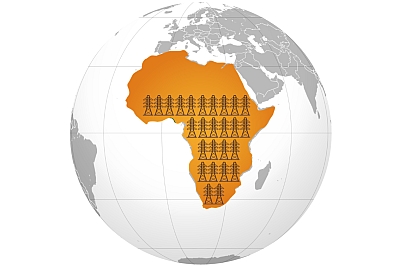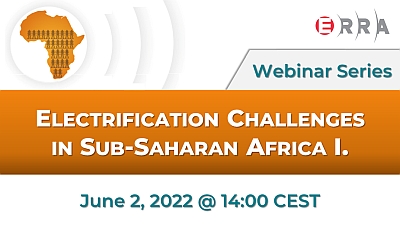

ERRA would like to provide a new format to its large member base in Sub-Saharan Africa via a series of webinars on the paramount challenge faced by the continent: electrification.
The first edition of the webinar series will look into the status quo and ways forward for the fundamental development of electricity access in Sub-Saharan regions. Speakers will present current statistics and elaborate on ongoing challenges and needs to foster the process. Updates and case studies will also include specific issues that hamper the efforts to electrify (such as the pandemic impact, economic and financial factors) and best practice examples that facilitate it.
The event will also shed light on existing projects that aim at enhancing regional regulatory cooperation such as the West Africa Regional Regulatory Partnership, which can significantly help to increase grid resilience and accessibility.
The second webinar in Autumn 2022 will look into off-grid installations and small-scale renewables together with a look at the technicalities and the question of their financing.
Webinar Recording
If you are interested only in a particular session,
click to watch on YouTube, expand the video’s description and jump directly to it by clicking the timeline links.
Webinar Presentations
- Gianluca Tonolo: Access to electricity in sub-Saharan Africa
- Francine Kyrene Mbock: Regulatory Framework to Facilitate Access to Electricity
- James Masumba Manda: AFUR Tariff Tool
Related Materials
- World Energy Outlook 2021, International Energy Agency (IEA), December 2021
- Sustainable Development Goal 7 (SDG7) initiative of the IEA, IRENA, UN, WB & WHO including inter alia data on access to electricity:
- Electricity Regulatory Index for Africa 2020, African Development Bank Group
- Electricity Regulatory Index for Africa 2021, African Development Bank Group
- Attracting Private Participation and Financing in the Power Sector in Sub-Saharan Africa : Findings from a Survey of Investors and Financiers

